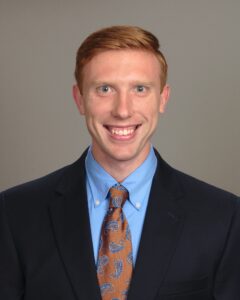About the T32 Research Fellowship
The T32 Research Fellowship is a program offered through an institutional training grant (National Research Service Award T32 GM086270) to develop clinician-scientists at the postdoctoral level of training in the UW Department of Anesthesiology & Pain Medicine. This program offers remarkable opportunities for fellows to develop a research career within a diverse range of interests. Our program graduates are trained clinician–scientists on track to become future leaders in innovative research in academic anesthesiology.
The specific aims of the T32 research fellowship are to:
- Recruit outstanding postdoctoral trainees from a national applicant pool, with attention to diversity in academic backgrounds, race/ethnicity, disability, and gender.
- Provide trainees with interdisciplinary theories and methods pertinent to their research area spanning biomedical, clinical, translational, population, and health services research.
- Create a supportive environment through strong mentorship, a breadth of research opportunities, and collaboration across departments.
- Create a practical research experience that allows each trainee to answer a distinct research question involving anesthesiology and perioperative medicine under the tutelage of a committed, experienced research mentor.
- Enhance scholarly presentation and publication of scientific work
- Build knowledge of different research methodologies
- Provide practical skills to foster success in grant writing.
Our program allows trainees to receive a minimum of two years of intensive research training with an opportunity to extend their training to a third year. The experience in the laboratory is intended to provide practical research instruction in fellows’ specific area of interest within anesthesiology and perioperative medicine.
Education
Core research areas
T32 training requires a commitment on the part of the applicant to actively engage in a minimum of two years of rigorous training in one of the six core research areas listed below, under the tutelage of an NIH funded mentor.
- Cardiovascular-Pulmonary Biology
- Clinical Outcomes Research & Epidemiology
- Genome Sciences & Bioinformatics
- Neurosciences
- Pain
- Pharmacology
Didactic
Once a month, our fellows participate in T32 program didactics, which are open to current trainees, T32 alumni, other departmental postdoctoral fellows, and research faculty and staff. The schedule rotates between four seminars:
- Writer’s Workshop
- Grant Writing Seminar
- Journal Club/Guest Lectures
- Work-in-Progress Seminar
For more information, see the 2024-2025 Didactic Schedule.
Training opportunities
Our program offers three positions for the T32 fellow training grant. Each year there are typically one or two positions open. The T32 fellowship guarantees 80% protected time to the trainee to pursue research. The stipend for salary is commensurate with previous training using the NIH salary scale. Clinician trainees maintain a one-day-per-week commitment to clinical work (maximum 20% overall effort) as an attending.
Program Director: Tonya Palermo, PhD
Associate Program Director: Nita Khandelwal, MD, MS
Program Administrator: Leanne Cornel
Eligibility
All trainees, in accordance with NIH regulations, must be citizens of the U.S. or a permanent resident of the U.S., i.e., holding an Alien Registration Receipt Card. Our T32 program and the University of Washington encourage applications from under-represented minorities, from people with disabilities, as well as from people from disadvantaged backgrounds.
Applicants must have received an MD or comparable degree from an accredited domestic or foreign institution.
Application Deadline for next cycle: March 30, 2025
Applicants must complete: (1) an application; (2) a short description of research interests and career goals that outlines a proposed course of future research; (3) a CV; and (4) three letters of recommendation (one of these should be from the proposed faculty mentor).
Learn about our research
 Sean Piantodosi, PhD
Sean Piantodosi, PhD
Dr. Sean Piantadosi is a post-doctoral fellow in the laboratory of Dr. Michael Bruchas in the Neurobiology of Addiction, Pain, and Emotion (NAPE) Center at the University of Washington. Dr. Piantadosi completed his PhD at the University of Pittsburgh, examining cortical and striatal mechanisms underlying compulsive behavior under the guidance of Dr. Susanne Ahmari. In the Bruchas laboratory, Dr. Piantadosi uses calcium imaging approaches in the deep brain to investigate circuits that are critical for processing of valence and arousal. He is most interested in using these large-scale imaging approaches to identify novel treatment strategies for disorders where valence processing and arousal are dysregulated, including addiction, depression, and anxiety.
 Daron Vandeleur, MD
Daron Vandeleur, MD
Dr. Daron Vandeleur is in the third year of her T32 fellow and a chronic pain physician in the Department of Anesthesiology and Pain Medicine and Seattle Children’s Research Institute under the mentorship of Dr. Tonya Palermo. Most of her training was completed at the University of Washington (B.S. in neurobiology, M.S. in epidemiology, MD, and clinical chronic pain fellowship). Her pediatric residency was completed at University of California San Francisco. The patients she sees in clinic motivate her to improve and expand access to pain care through innovative methods such as mobile health and community-delivered interventions. She is particularly interested in integrative pain management. Currently, she is working on a grant to develop a meditative movement intervention for adolescents and young adults with chronic pain using a person-centered approach. She also aims to conduct research in acupuncture in the pediatric and young adult population and is clinically enrolled in a medical acupuncture course to expand care directly for her patients. Her previous work includes understanding the sociocultural context of pediatric chronic pain, improving the transition from pediatric to adult pain care, and understanding the user experience of mobile health interventions.
 Gil Stamm, MD
Gil Stamm, MD
Dr. Gil Stamm is a T32 Fellow and physician scientist working in Dr. James Carothers’ lab in the Department of Chemical Engineering. Dr. Stamm’s research focuses on synthesizing adenosine triphosphate using cell-free metabolic engineering. His goal is to use this energy to drive cell-free reactions to produce pharmaceuticals, nutrients, plastics and other useful chemicals. These reactions will reduce atmospheric carbon dioxide thereby helping environmental health and produce oxygen and thus support an atmosphere. This technology supports Dr. Stamm’s long-term goals of making anesthesia more accessible, hospitals carbon neutral, and long-duration space travel medically possible.
